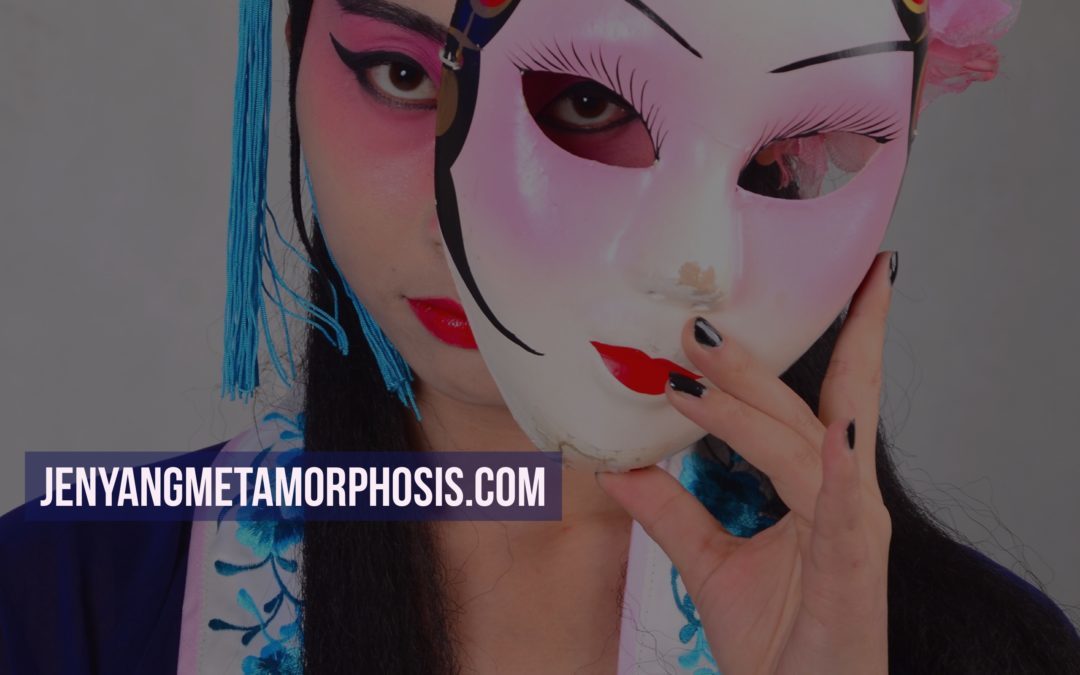As a self-trained approval addict, born and raised in a perfectionist family, earning approval and avoiding disapproval had been the two primary survival factors to keep me safe emotionally. Influenced by the Asian culture where humbleness is highly valued, I was taught that saying YES (along with a quick nod: default mode) is equivalent to respecting others and showing kindness. This belief has been deeply rooted in me and molded me into an “elegant Ms. Yes” (with internal resentment hidden underneath).
Fear of rejection had been one of my deepest fear that I felt the need to compromise and to meet the expectations of others so I can secure the “unconditional love (approval and validation)” and feel good enough.
But, what’s wrong with people-pleasing? Is people-pleasing such a crime in self-development?
The truth is that it’s ok to people-please. It’s natural to people-please because there is a sense of satisfaction when we know we have done something good for someone and make them smile. Contributing to making a positive difference in other people’s lives gives our life meaning and purpose. It also leads to the connection with other like-minded people, which is an essential human emotional need.
It’s all good until you take it to the extreme as if you can’t live without it. If our effort to get liked, is greater than our enjoyment in actually doing whatever we are doing, then obviously, there’s a problem. We want to be acknowledged, approved, validated to the point that we don’t even like who we really are, is it worth it?
The fundamental idea of a people-pleaser is that everyone must like me because “I am super nice and agreeable.” On the surface, there’s nothing wrong with it. It sounds perfect, but if we dig in deeper, there’s a negative emotion involved. We are nice to others so people can be “nice back.” The outcomes are somewhat manipulated because of the fear of rejection, isolation, abandonment, anger (avoiding conflicts, confrontation).
By chance I came across a fascinating book, The Disease to Please: Curing the People-Pleasing Syndrome (by Harriet B. Braiker) online, ordered it and started reading it with enthusiasm.
Harriet talks about the 10 commandments that people-pleasers live up to.
- I should always take care of everyone around me, whether they ask for help or not.
- I should always do what others want, expect or need from me.
- I should always listen to everyone’s problems and try my best to solve them.
- I should always be nice and never hurt anyone’s feelings.
- I should always put others first before me.
- I should not disappoint anyone or let others down in anyway.
- I should always be happy and upbeat, and never show any negative feelings to others.
- I should never say No’s to anyone who requests something of me.
- I should always please other people to make them happy.
- I should never burden others with my own needs or problems.
If these ring true to you, you might need to pay an extra attention (that was me!) because you will never be able to do this. First of all, it’s impossible to stay happy and upbeat all the time. As soon as you don’t, you start beating yourself up for not doing perfectly.
Secondly, there’s nothing wrong with having a high standard as long as they are attainable, but the ones listed above are just Not the case. They are toxic thoughts, reinforcing victim mentality. You are trying to be nice to anyone, but who can’t you be nice to? Y-O-U!
Harriet also mentions 7 deadly “Should’s”: If I live up to the 10 commandments, people will live up to these (a trade-off mentality).
- Other people should appreciate and love me because of all the things I do for them.
- Other people should always like and approve of me because of how hard I work to please them.
- Other people should never reject or criticize me because I always live up to their desires and expectations.
- Other people should be kind and caring to me in return, because of how well I treat them.
- Other people should never hurt me or treat me unfairly because I’m so nice to them.
- Other people should never leave or abandon me because of how much I make them need me.
- Other people should never be angry with me because I will go to any length to avoid any conflict, anger or confrontation with them.
As soon as somebody doesn’t live up to the “Should’s,” it drives you mad, or resentment starts piling up. So here I’d like to share with you some tips to avoid excessive people-pleasing.
1. Fill your own cup first
Some people worry about being viewed as being selfish if they put their needs first. In my experience, people who tend to focus on the needs of others are swinging so far on the extreme of the pendulum (the opposite is considered as narcissist), that even if they radically changed their behavior, they’d still probably be more generous than most. When we prioritize other’s needs before ourselves, we poison the relationship. The demand of others is always limitless. If you know how to please yourself first, to make fueling your energy tank as a top priority, in the long run, you’ll live more lightheartedly without regret.
2. Be proud of who you are, authentically
When we constantly change ourselves to get people to like us a bit more, we cannot stop losing a part of ourselves. Developing humble confidence just by being who we truly are without apology is vital. We feel better about ourselves when there’s nothing to hide. People will have no choice but to either accept us or to walk away. Friends who enjoy your silence just as much as they enjoy your words are the right crowds. The like-minded people will love you for who you are because of your being, not necessarily your actions.
It’s OK not to be always nice. The action of over-giving can creep people out sometimes and devalue both the giver and the receiver. When you sense your people-pleasing side is flaring up next time, ask: Am I being authentic here? Or there’s an underlying motive in me (in exchange for external validation, love, or approval)? Authenticity is precious. Your inner wisdom knows which one to turn on. :))
3. Express vulnerability
I was raised to be reserved and cautious with my self-expression. I was raised never to be vulnerable because being so meant I was weak. But, what I realized in the recent years, being vulnerable doesn’t mean that we need to be an open book and bare our soul to everyone we encounter.
In fact, vulnerability is a sign of strength, not weakness. It means no holding back and showing how we feel honestly with others. Yes, it means stepping out of our comfort zone to risk rejection sometimes. However, the benefit of embracing vulnerability has greater leverage than risking the fact people might not like us. We let go of the stress of pretending something we are not.
There’s no need to overstretch yourself to please everyone because you know that you can’t control how people think of you anyway. You only need to make room to form deeper, healthier relationships with others who love the real you, and you draw these people into your life.
4. Practice saying No without guilt
To many people-pleaser, saying NO to others can be one of the hardest things on earth. I totally get that awkward feeling. But, as you practice saying “NO”, it will get easier. :))
For a week or two, pick one thing each day that you wouldn’t normally say “NO” to. Then, instead of saying “yes” automatically– say “NO”! It doesn’t have to be something extremely important; just something that others might take for granted.
For example, if you are invited to a friend’s dinner party, and you’d rather not drink at all, but usually get a glass of wine anyway because it’s easier than feeling like a party pooper. In this case, break the old pattern and Say “NO” politely without guilt (meaning no excuse needed).
Physiologically, when saying your authentic “NO” by demonstrating a non-victim posture (submissive, hunched over), choose to stand straight or sit tall while breathing deeply will help you keep your presence strong in the face of pressure from others.
In a nutshell, people-pleasing is natural. When we appreciate the beauty of people-pleasing, we feel awesome to make people happy, as long as we don’t overdo it. Honor your own style first and if you feel generous, then give a little bit extra to the crowd with no strings attached. The sooner we set a healthier boundary, the better the relationship we can enjoy with others. :))
Sending you lots of love, joy, peace and happiness,
xoxo,
Jen


